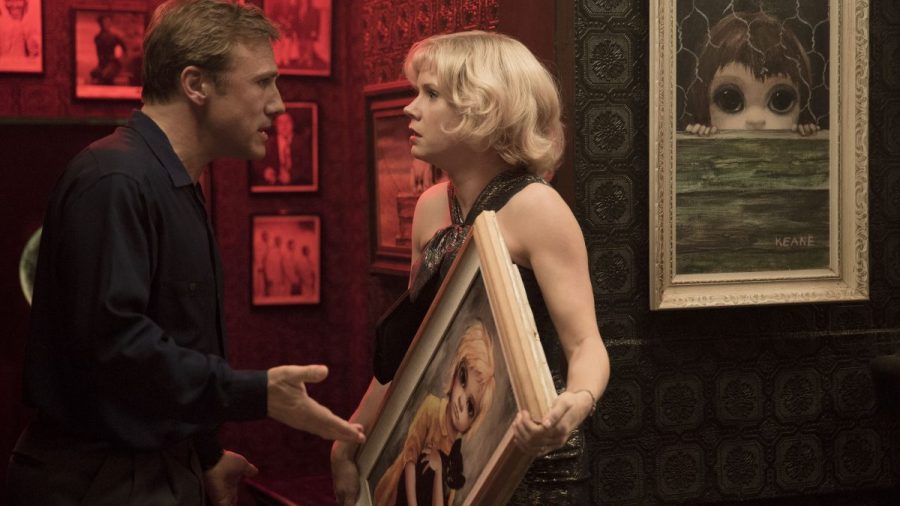In cinemas from Fri 26 Dec
Tim Burton / USA / 2014 / 106 mins
At the opening of Tim Burton’s biopic of the artist Margaret Keane, our protagonist (played by Amy Adams) is escaping from a life that has become insufferable. Heading to her car, we watch as she speeds away from a suburbia not dissimilar to that of Burton’s own Edward Scissorhands, albeit somewhat muted and missing a castle. Judging on the director’s recent fare, we could safely expect her destination to be somewhat unhinged: a place dominated by black and white stripes and crooked spirals – Burtonland, if you will. Yet as Margaret arrives in 1950s San Francisco, it becomes clear we are actually witnessing that rarest of beasts: a grounded Tim Burton film. And there’s not a Johnny Depp or a Helena Bonham Carter in sight.
Reuniting Burton with screenwriters Scott Alexander and Larry Karaszewski, Big Eyes is more Ed Wood than Alice in Wonderland, offering a welcome change of pace as the director deals with issues of fame, egotism and power – not as they are given to Margaret, but instead as they are stolen away by her domineering husband, Walter (Christoph Waltz). At first appearing little more than an artist with ideas above his station (‘Monet? What a compliment! Though I’m more in the tradition of Pissaro,’ he claims, ironically suggesting it isn’t his style to ‘lay it on thick’), he is pretentious, but not unfriendly. Emotionally vulnerable and forced by circumstance, Margaret is not only wooed by Walter, but soon allows him to start taking the credit for her work: a series of paintings based on her daughter, waif-like figures with oversized eyes.
Avoiding firm assessment of the art itself (‘It’s creepy, maudlin and amateurish’, one onlooker observes. ‘Exactly; I love it’, replies another), the film focuses on the phenomenon caused by the Keane waifs and the situation this created behind closed doors. From selling paintings, to selling copies, to selling postcards of the copies, as Walter’s undeserved empire grows so too does his cruelty as he forces his wife to crank out work under factory-like conditions. A subtle examination of domestic abuse, Waltz’s disarmingly jaunty performance rarely breaks stride, Walter’s passive-aggression often hidden behind a smile; following one breakthrough sale, he cheerily informs Margaret that the painting in question ‘wasn’t even one of your good ones.’ Soon the ‘you’re Keane, I’m Keane’ agreement their scam was founded on has shifted; when Margaret suggests that perhaps she could put her name to some of the work, Walter swiftly reminds her: ‘Keane means me.’
The film’s biggest strength, however, is also its greatest weakness. Though its portrayal of the Keanes’ home life tackles dark and upsetting themes – Adams excelling at worn-down frailty and Waltz successfully conveying the potential danger behind a salesman’s façade – sometimes the strokes are just too broad. As the narrative reaches its courtroom conclusion, Walter’s chirpy clowning becomes problematic; the jokes may be at his expense, but it feels somewhat inappropriate that they’re there at all. Instead of a poignant commentary on marital mistreatment, what we’re left with is a dark comedy where farce sometimes falls in the wrong places – enjoyable, but tonally dubious. Yet though the result may not be perfect, one thing is difficult to ignore: Big Eyes is more than just another factory produced Burton film.
